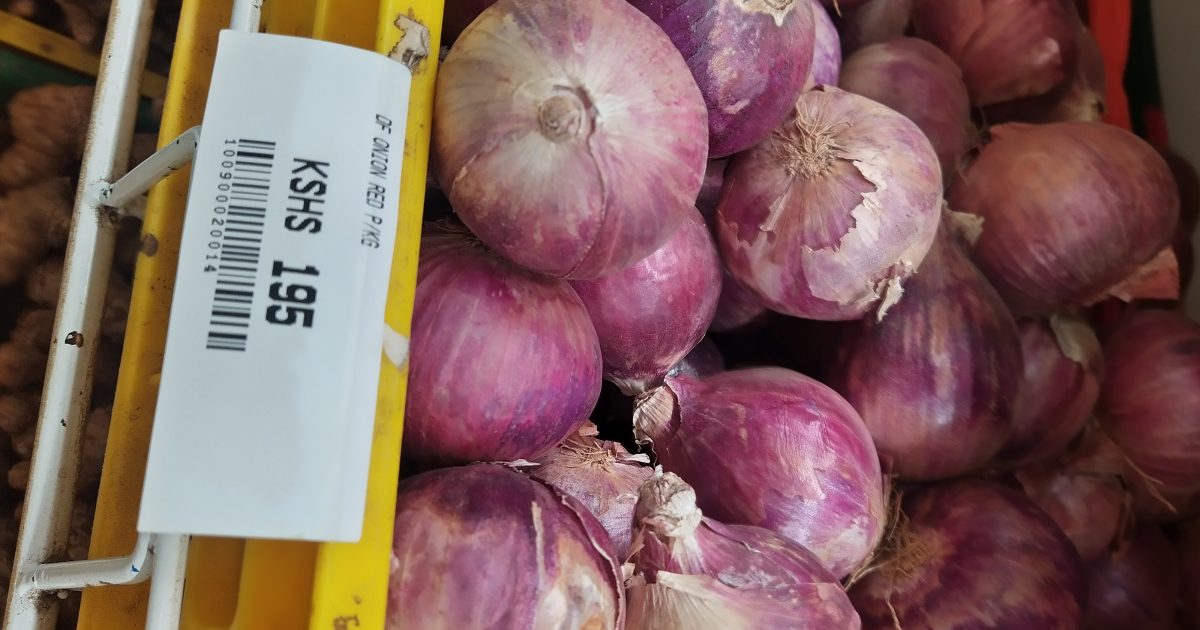The prices of onions in Nakuru City have increased by more than 200 percent, resulting in households that are struggling economically to forego the all-important bulb that adds flavour to food.
Two months ago, the onions were selling for as little as Sh50 per kilogramme, but currently they are retailing at Sh195 per kilogramme. A manager at Woolmart Supermarket, George Omondi, said they are importing the onions from Ethiopia, hence the high prices.
A kiosk operator at Shabab Estate, Julius Mbuthia, said he has stopped stocking onions because his customers can’t afford to pay Sh25 for a single onion bulb to enable him make a profit.
The chairman of small-scale farmers in Nakuru County, Bernard Mwenje said although onions perform extremely well in the country, especially the semi-arid areas, many farmers avoid growing them because the local traders seem to prefer importing from Tanzania at much cheaper prices. He claimed that when they buy local onions, they pay way below the input cost, making the venture unviable.
He appealed to local supermarkets to consider contracting local farmers to grow onions for them while agreeing on the prices beforehand, in order to encourage the farmers to increase acreage and supply the country with enough onions.
A local farmer who used to grow onions at Rongai, Peter Koech said, the losses he made left him in a very bad place, but he’s still willing to grow them if it is on a contractual basis. He warned, however, that with climate change being experienced, onions are likely to continue to be expensive because any variation in temperatures affects them.
Koech also blamed some local farmers who easily reduce prices of commodities to suit themselves, even selling unperishable products such as onions for as little as ten shillings per kg, thereby affecting the overall market pricing.
In the world’s largest democracy, India, even a single increase of one rupee, causes demonstrations because there’s not a meal they cook without the all-important onion.
By Veronica Bosibori




